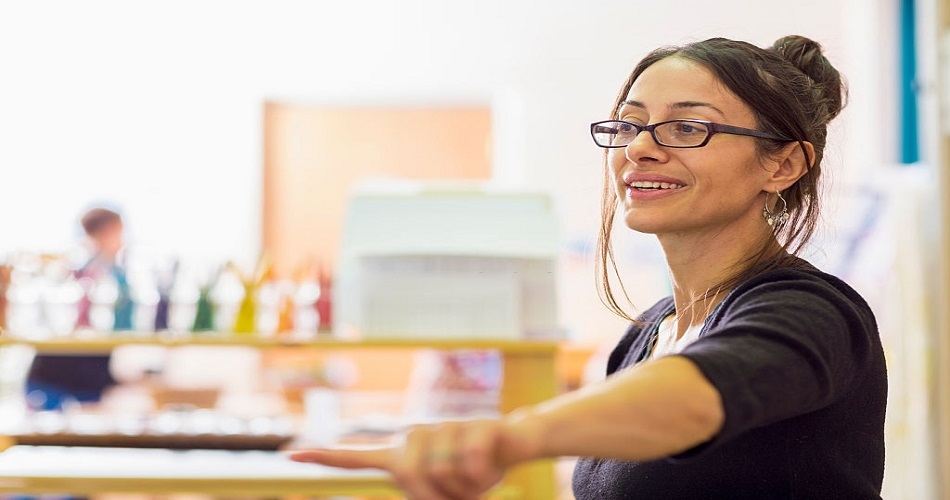“These words reveal the child’s inner needs; ‘Help me to do it alone’.” ~ Maria Montessori
Parents today are searching ways to boost the confidence of their children and make them self-dependent. Nearly a century later, the words of Maria Montessori’s have proved to be true. One of the core concepts behind the Montessori method is what Montessori called the “prepared environment.” When the environment is created in a manner that enables the child to start looking for themselves, the environment (rather than the adult) becomes the Montessori teacher. Now the child can follow their inner instructions.
A bit of Montessori can keep the kid’s brain active, without diving into the textbooks. The Montessori method is a child led approach to teaching that emphasizes on a child’s physical, social, emotional and cognitive development. If you do a little research, you will find several ways to incorporate Montessori educational methods at home. The good thing about using Montessori concepts at home is that you can you can use as much or little your child wants, starting with nature walks, visual math skills or even etiquette.
So, how do you introduce this peaceful environment into your daily routine at home?
Will the learners adapt to this concept?
Here are few methods you can look at while incorporating Montessori at home:
- Keeping Cubbies and Coats
You can create an area where your child can hang up his or her own coat. You need to just place a few child-height pegs or hooks on the wall at a child’s height. If the climate or season suits, you can even have a shelf or cubby for gloves, hats, boots etc. Everything you keep should be well within reach for your child. Helping the child to reach the shelves will destroy the whole purpose. The child should do the task without any assistance.
- Empower your child
Assist your child to prepare their own snacks. You can guide them to put peanut butter on bread or slice a fruit safely with a knife (cheese knife).Give them the freedom to pour water from a child-sized pitcher to a small glass or cup. Do it on regular basis. You will see that it won’t be that disastrous you thought it to be. The task will teach the child the cause and effect rule and how to care for nice things.
- Set up Bathroom Basics
The bathroom is another place where children can take part in daily activities or routine. It is a place of self-reliance. For example, you can keep a stool at the sink for kids to easily wash their hands, brush their teeth or use the mirror to brush hair or get ready.
Child-sized potty chairs can also be introduced. It will be a huge help with potty training. Make them wash hands on a daily basis, (before meals, after outdoor play, etc.).This daily habit of hand washing will make your child gain confidence in himself/ herself, all at once.
- In the bedroom
You will be surprised to learn that many families who follow Montessori methods, don’t use cribs, even when their infants are small. Instead, they use a floor bed.
A floor bed can be of various kinds. It can simply be a firm mattress on a floor in a safe spot, or they can be more interesting, like beds shaped like a house. The idea behind using a floor bed it is that it gives children and babies the required freedom to get up and out of bed without any assistance from their parents. However, you must make sure the rest of the room should be appropriately baby proofed. You may want to avoid keeping the large furniture pieces, like dressers, or just make sure they are well anchored.
- The Absorbent mind
Children learn mostly by observing the surroundings.Encourage your child to explore the world through hands-on experience like taking nature walks. Through studying a ladybug, pinecone or clouds, he or she is learning to know things. You can set up a small basket for your child to display their collection from nature. You can also start a garden with them. In a Montessori classroom in early childhood education, children are involved in gardening like growing blueberry, basil or lettuce.
By being a part of these simple activities, your child will learn the essential life skills, and so much more! These daily tasks teach coordination, balance, order, sequencing, small and large motor skills, and above all, independence, confidence, and self-esteem. You will learn these through Montessori teacher training courses.
Montessori is all about having your child explore and experiment with the world around them. You just need to make sure that the environment is safe!











